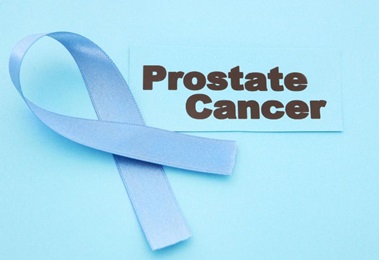Hormone Therapy for Prostate Cancer
Prostate cancer cells depend on hormones such as testosterone and dihydrotestosterone (DHT) to thrive. Hormone therapy, which is also called androgen deprivation therapy or androgen suppression therapy, for prostate cancer involves depriving the cancer cells of this fuel by either blocking the production or action of androgen hormones.
Although hormone therapy plays an important role in treating patients with advancing prostate cancer, it is increasingly being used to treat localized disease as well. It may be used before radiation to help shrink the tumor or along with radiation if there’s a high risk of recurrence following treatment. Because hormone therapy alone does not cure prostate cancer, it is usually used in concert with other treatments.
Therapies that Decrease Androgen Levels
The following therapies may be used to decrease androgen levels in patients with prostate cancer:
Orchiectomy
Orchiectomy involves the surgical removal of the testicles. Since over 90 percent of testosterone is produced by the testicles, this is an effective strategy for blocking testosterone release. Orchiectomy causes most prostate tumors to stop growing or shrink for a period of time.
As a low-cost, one-time procedure, an orchiectomy is typically done on an outpatient basis in the urologist’s office. Because this approach is permanent and irreversible, most men opt for drug therapy instead.
Luteinizing Hormone-Releasing Hormone (LHRH) Agonist
LHRH is one of the key hormones released by the body before testosterone is produced. Blocking its release is the most common method of hormone therapy.
LHRH agonists are given through regular shots or implants under the skin. They may be administered on a variety of schedules that range from once a month to once a year.
LHRH agonists can create a testosterone surge or flare reaction because of a brief rise in testosterone during the first few weeks of treatment. For patients with cancer that has spread to the bones, a testosterone surge can cause a short-term increase in tumor growth, resulting in bone pain or paralysis. Flare reactions can be prevented by taking antiandrogens, which can help block the action of testosterone in prostate cancer cells.
LHRH Antagonist
These medications block LHRH from stimulating testosterone production without causing an initial testosterone surge. For example, degarelix (Firmagon) is an LHRH antagonist that is given as a monthly injection. Following treatment, patients may experience pain or swelling at the injection site as well as increased liver enzymes.
CYP17 Inhibitor
Even if you use LHRH agonists and antagonists to stop the testicles from making androgens, other cells in the body (including prostate cancer cells) still make small amounts of androgens. These small amounts of hormones can continue to stimulate cancer growth. Abiraterone (Zytiga) is used to block the CYP17 enzyme, which helps stop these cells from producing androgens. Administered as a daily pill, this drug can be used to treat advanced castration-resistant cancer (cancer that spreads despite hormone deprivation).
Since CYP17 inhibitors don’t interfere with the testicles’ ability to produce testosterone, patients whose testicles are still intact will need to keep taking an LHRH agonist or antagonist.
Therapies that Interfere with Androgen Function (Antiandrogens)
Taken daily as pills, antiandrogens bind to the androgen receptor proteins in the prostate cells, preventing the androgens from functioning. In addition to preventing a flare reaction, antiandrogens may be added to your treatment plan if an orchiectomy, LHRH agonist or LHRH antagonist is no longer working by itself. Commonly prescribed antiandrogens include flutamide (Eulexin) and bicalutamide (Casodex).
Enzalutamide (Xtandi) is a newer type of antiandrogen that blocks the signal that the receptor normally sends to the cell’s control center to trigger growth and division. This antiandrogen may be used to treat castration-resistant prostate cancer.
Side Effects of Hormone Therapy
As the primary male hormone, testosterone plays an important role in establishing and maintaining the typical male characteristics along with a variety of other processes in the body.
The potential effects of testosterone loss include the following:
-
Hot flashes
-
Erectile dysfunction
-
Decreased or absent sexual desire
-
Osteoporosis, which can lead to bone fractures
-
Fatigue
-
Weight gain
-
Decreased muscle mass
-
Anemia
-
Depression
-
Elevated cholesterol levels
Most men on hormone therapy experience at least some of these side effects. Before beginning hormone therapy, you should discuss the effects of testosterone loss with your doctor to help minimize them. Exercise is one of the best things you can do to prevent many of these side effects.




